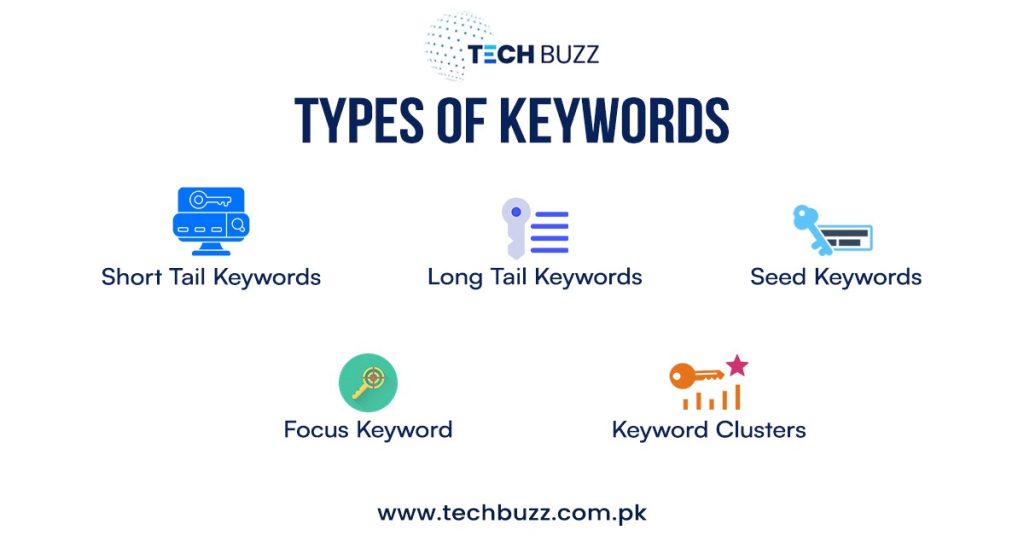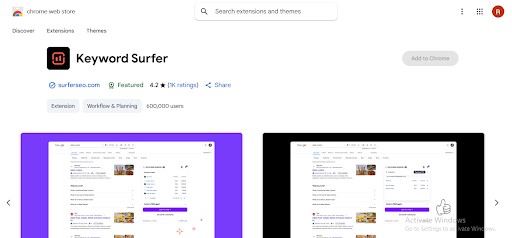If you want your content to rank on Google, or want to attract the right audience, and convert clicks into customers, keyword research is non-negotiable. In this beginner-friendly guide, you’ll learn what keyword research is, why it matters, and how to do it step-by-step using top tools like Google Keyword Planner, Moz Keyword Explorer, and Ahrefs.
We’ll cover the types of keywords, how to find your SEO sweet spot, and avoid rookie mistakes like keyword stuffing or ignoring search intent. Whether blogging, launching a product, or creating YouTube videos, this guide will equip you with everything you need to build a winning SEO strategy, even on a budget.
_______________________________________________________
Keyword Research for Beginners: Tools, Tips & Techniques
SEO Strategy | Seed Keywords | Content Strategy
If you’re new to digital marketing or SEO, you’ve probably heard the term “keyword research” often. But have you ever thought about what it means, why it matters so much, and how to do it properly? Let’s find out together.
In this beginner-friendly article, we’ll break down everything you need to know about keyword research, from the best tools to use to practical tips and proven techniques. Whether you want to start blogging, want tips for optimizing websites, and looking for tips to launch products. Techbuzz will help you discover the right keywords to drive organic traffic and better results.
What Is Keyword Research?

First of all, let’s find out what keyword research is. It’s the simple process of finding and analyzing the words and phrases that people type into search engines like Google, YouTube, and more when they are looking for information, products, or services. These words used by people are known as keywords that help you understand what your target audience is searching for online.
Example:
Imagine you want to write a blog on skincare. Before starting, you should know what your audience is searching for related to skincare. Are they looking for “natural remedies for acne,” “best moisturizers for oily skin,” or “skincare routine for glowing skin”?
By identifying the right keywords, you can solve your audience’s problems by answering their search queries directly. This not only builds trust but also boosts your blog’s visibility. You’ll also attract more readers, boost traffic, and revenue as well.
Why Is Keyword Research Important?
We hoped you now have a clear idea about what keyword research is, but knowing why keyword research is important is also essential. If you want to open an e-commerce store, a YouTube channel, or start blogging, the right keywords can guide your entire marketing strategy and help you achieve better results.

Here’s how SEO keyword research will help you out:
Drives targeted traffic to your site: As you know, the right keyword will automatically increase the traffic. But if you find a suitable tool, you can find the exact terms your audience is searching for. However, targeting high-intent keywords for SEO also enhances authenticity and organic traffic.
Boost content strategy with relevant topics: A smart content strategy starts with solid keyword research for SEO. You can boost tropical authority, cluster content, and create subtopics easily with strong research.
Identify competitor keyword research opportunities: It is also important because it can help you to analyse competitor keywords. This way, you will always be on your game from your competition easily.
Connect your content with searcher intent: Research also helps you to find the searcher intent, their likes or dislikes, easily. Whether you’re doing YouTube keyword research or planning Amazon keyword research, aligning your content with the user’s search intent is essential for better engagement and rankings.
Informs decisions about products, blogs, and landing pages: From naming a new skincare product to titling your next blog post, research will help you make everything compelling.
Types of Keywords: Know the Differences
Till now, you have got a clear idea about what a keyword is and why it is important. Now, let’s find out about the types of keywords and how they help in SEO keyword research.
Here are a few types of keywords:

Short Tail Keywords
Short tail keywords (also called head terms) are broad, generic search phrases consisting of one or two words. They usually have high keyword search volume, but they are also highly competitive due to their broad nature.
Example:
- “Shoes”
- “Marketing”
- “Fitness”
No doubt, these keywords can bring massive traffic, but it is difficult to rank for them and even harder to understand the searcher’s intent.
Long Tail Keywords
After that, we got long tail keywords. They are longer, more specific keyword phrases that typically consist of three or more words. They have lower keyword difficulty, less competition, and often a higher conversion rate because they align more closely with what users are looking for.
Example:
- “Best trail running shoes for beginners”
- “Affordable skincare routine for dry skin”
- “How to start a blog in Pakistan”
However, targeting long tail keywords helps you reach a more defined audience and find your SEO sweet spot.
Seed Keywords
Seed keywords are the foundational terms that define your niche or topic. It’s like using basic ideas with keyword research tools like Google Keyword Planner, Ahrefs keyword research, or Moz Keyword Explorer to generate keyword ideas.
Example:
- “Digital marketing”
- “Skincare”
- “Fitness”
Think of seed keywords as your starting point when doing keyword research for SEO or building a content strategy.
Focus Keyword
A focus keyword is the main keyword or phrase that you optimize a specific page or blog post for. It also reflects the primary topic of the content and should be naturally used in the title, meta description, headers, and body text.
Example:
If you’re writing a post titled “10 Tips for Glowing Skin”, your focus keyword might be “glowing skin.”
Choosing the right focus keyword will ensure your content matches what your audience is searching for and boosts your SEO basics.
Keyword Clusters
Lastly, we have Keyword clusters. They are groups of closely related keywords that target the same or similar search intent. Using keyword clusters allows you to cover a topic more thoroughly, improve internal linking, and build topical authority, key for a strong SEO strategy.
Example cluster for “Digital Marketing”:
- “What is digital marketing?”
- “Digital marketing strategy”
- “Best digital marketing tools”
- “Benefits of digital marketing”
It’s like targeting multiple subtopics for a single topic. It also helps you to cover search intent like a pro for better visibility and traffic.
How to Research Keywords Effectively: A Beginner Friendly Tips
If you are a newbie or want to improve your keyword research game. Well, you are at the right place. Here’s a simple, step-by-step workflow that will help you discover the right keywords for SEO for improving content strategy.
Start with Seed Keywords
As we discussed earlier in the types of keywords, seed keywords are the foundational terms that define your niche or main topic. These broad phrases are also a starting point for every effective keyword research process.
To start, brainstorm a list of basic terms that are directly associated with your blog, business, or niche. However, you can also consider searching terms or phrases that people may use to find information, goods, or services in your sector.
Examples of seed keywords:
- “Fitness”
- “Organic skincare”
- “Digital marketing”
You’ll use these basic terms to explore more specific keyword opportunities using various keyword research tools.
Use a Keyword Research Tool
The next step is to plug your seed term into a keyword research tool to generate more ideas. You can also view keyword search volume and analyze competition with these tools as well.
Some powerful tools to consider include:
- Google Keyword Planner (free, reliable, and great for ad-related insights)
- Moz Keyword Explorer (ideal for SEO beginners)
- Ahrefs keyword research (excellent for deep SEO analysis)
- SEMrush keyword research (great for competitor insights)
- Fiverr keyword research gigs (perfect if you prefer outsourcing the task)
These tools help you identify opportunities, including long tail keywords and high-potential phrases with less competition.
Analyze Keyword Metrics
Once you’ve gathered a list of keyword ideas using your favorite keyword research tool, it’s time to evaluate them. Not all keywords are created equal—some may drive massive traffic, while others are too competitive or vague. To choose the best ones, you need to understand a few essential keyword research metrics.
Here’s what to focus on:
- Keyword difficulty – Tells you how tough it is to rank. Lower scores are better for newer websites.
- Search volume – Shows how many people search the keyword monthly. Higher volume means more potential traffic.
- Cost-per-click (CPC) – Indicates the keyword’s value in paid ads. Higher CPC often means high commercial intent.
- SERP competition – Look at who ranks now. Competing with smaller sites is easier than going up against big brands.
Balancing these metrics helps you find the sweet spot between traffic potential and competition.
Look for Long Tail and Low-Competition Keywords
When starting out with keyword research, focusing on long tail keywords can give you a big advantage. These are longer, more specific search phrases that often reflect exactly what users are looking for.
They typically have:
- Lower keyword difficulty
- Less competition in the SERPs
- Higher conversion potential due to clear searcher intent
Example: Instead of “shoes,” go for “best running shoes for flat feet.”
This targeted approach improves both SEO rankings and conversions.
Group Keywords into Clusters
Once you have a list of solid keywords, start grouping them into keyword clusters based on shared intent or topics. This allows you to:
- Create pillar content (main topics)
- Build cluster content (supporting subtopics)
- Strengthen your site’s topical authority and internal linking
This method is ideal for long-term success and aligns with modern SEO strategy best practices.
Free Keyword Research Tools Worth Trying in 2025
You don’t need to spend money to start effective keyword research. These free keyword research tools are perfect for beginners, bloggers, marketers, and small businesses looking to build a solid SEO strategy without a big budget. Let’s explore a few tools that will speed up your tasks and boost productivity like a pro.

Google Keyword Research Planner
Google Keyword Planner is a free tool by Google designed for advertisers but widely used for SEO keyword research. It helps you discover new keywords for SEO, view keyword search volume, and analyze competition levels. Perfect for building both paid and organic marketing strategies based on real search data.

<Google Keyword Research Planner>
Who it’s for:
Marketers and advertisers
What it does: This tool by Google is ideal for planning ad campaigns, but it’s also great for SEO keyword research. It shows estimated keyword search volume, competition, and cost-per-click (CPC) for different keywords.
It’s a must-have for anyone using Google Keyword Planner to plan both organic and paid content strategies.
Keyword Surfer (Chrome Extension)

<Keyword Surfer (Chrome Extension)>
It is a free Chrome extension that shows keyword search volume, similar keywords, and on-page data directly in Google search results. It’s perfect for quick, on-the-spot SEO keyword research while browsing.
Who it’s for: Bloggers, content creators, and freelancers
What it does:
This free browser extension gives you instant keyword metrics, like search volume and related terms, directly on Google search results. It’s great for quick, on-the-go keyword research for SEO without logging into a dashboard. Use it to spot long tail keywords in real time. You can even hire an SEO company that can perform all the keyword related tasks quickly. For more information, feel free to contact us!
How TechBuzz Helps You with Keyword Research
At TechBuzz, we don’t just talk about keywords, we help you master them. Whether you’re a blogger, small business owner, or digital marketer, our guides and tools are designed to simplify the process of keyword research and boost your visibility online.
Here’s how TechBuzz supports your success:
- Step-by-step tutorials to help you understand what keyword research is, why it matters, and how to do it effectively.
- Curated lists of the best keyword research tools, both free and paid, like Google Keyword Planner, Moz Keyword Explorer, and SEMrush keyword research.
- Actionable tips for finding your SEO sweet spot by balancing keyword search volume, keyword difficulty, and intent.
- Beginner-friendly strategies for building keyword clusters and using long tail keywords for better rankings.
- Insights into YouTube keyword research, Amazon keyword research, and even hiring help with Fiverr keyword research gigs.
We’re here to make sure your SEO keyword research is smart, strategic, and aligned with your business goals with our SEO services. With TechBuzz, you’re not just guessing, you’re growing.
Conclusion
The foundation of any effective SEO plan is a thorough understanding of keyword research. You may increase the exposure of your website and attract more focused traffic by knowing the different kinds of keywords, utilizing the appropriate tools, and avoiding typical blunders. TechBuzz is here to help you at any stage, whether you’re just getting started or honing your strategy, by giving you the resources and knowledge you need to be successful. You can even explore our portfolio for a better understanding!
Keep in mind that using the appropriate SEO keywords not only improves your ranking but also helps you engage with and satisfy your audience. Thus, begin your research, begin ranking, and observe the success of your material! Lastly, you can also explore Techbuzz Canada for further tips and tricks. This SEO agency can help you achieve your goals quickly.
How do I choose keywords with the right difficulty?
Look for a balance between high search volume and low-to-medium keyword difficulty for quicker wins.
Can I do keyword research for YouTube?
Yes! Use VidiQ Keyword Research or YouTube Keyword Research Tool options like TubeBuddy.
Why is keyword research important for SEO?
Because it aligns your content with what people actually want—boosting visibility, traffic, and engagement.

